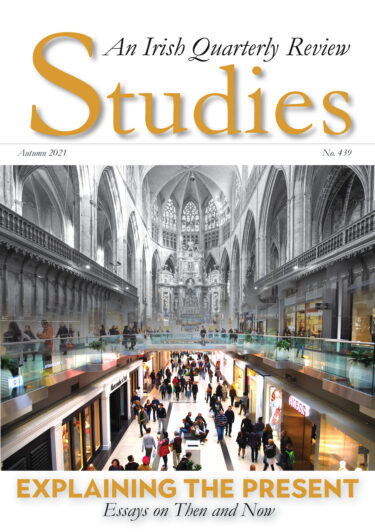Showing all 9 results
Setting the bar characteristically high for itself, the autumn 2021 issue of Studies: An Irish Quarterly Review considers, from a number of perspectives, the foundational substructure upon which contemporary reflective thought and opinion are based. An underlying theme is that in order to comprehend the present zeitgeist and influence that of the future, it is important to have an understanding of our collective past.

